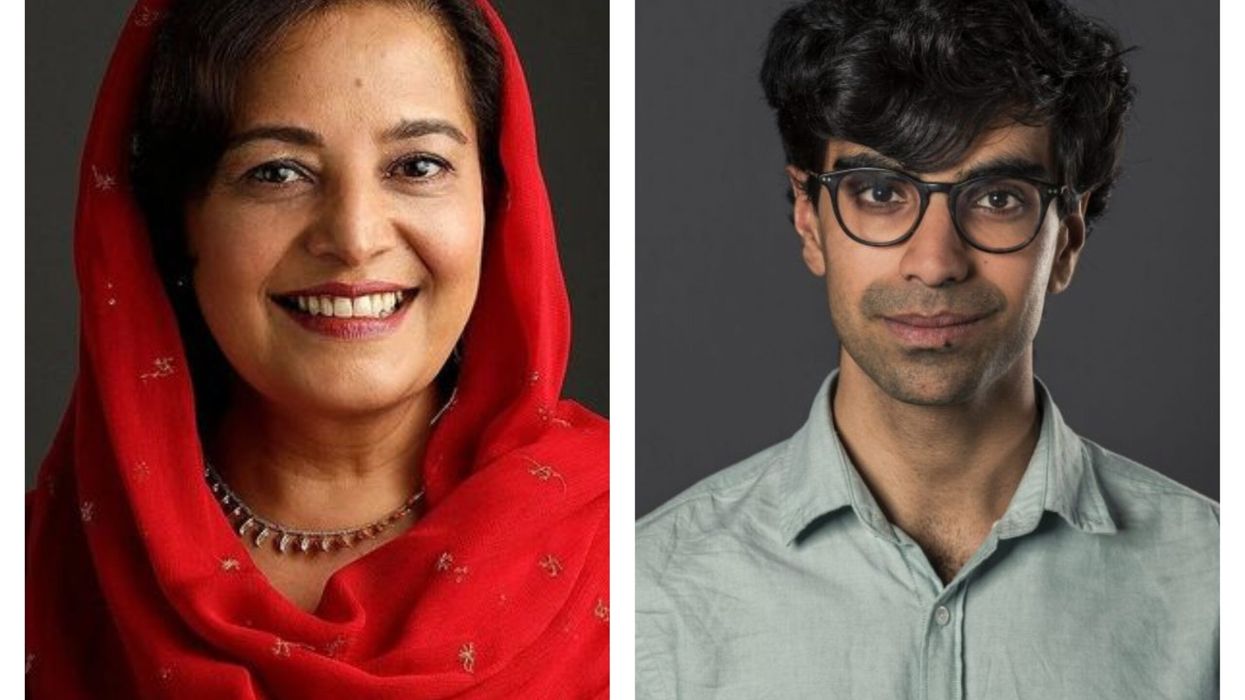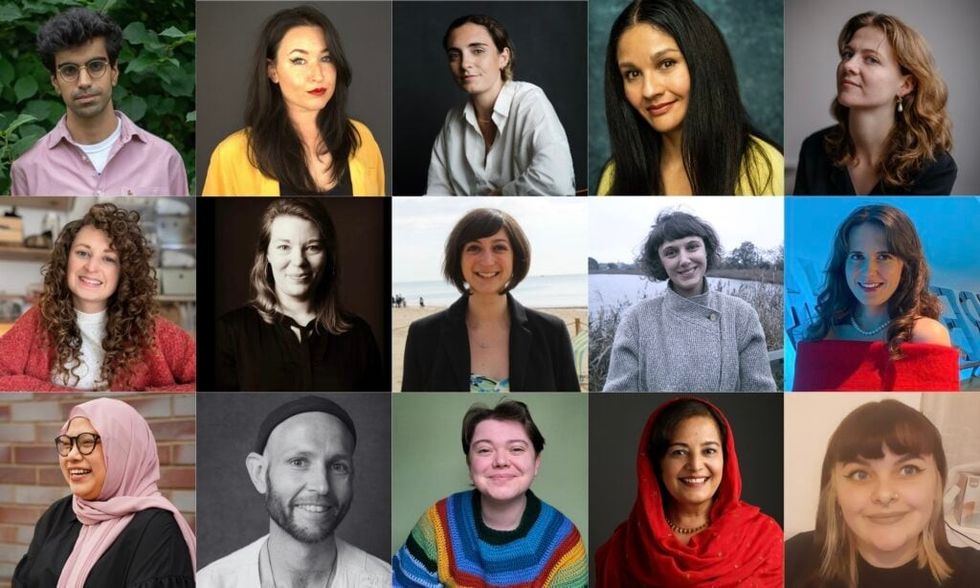Michael Grandage on Tuesday announces the recipients of the seventh annual MGCfutures Bursaries awarded across a range of theatrical disciplines including directing, writing, producing, designing, performance-makers, and for the first time a puppet maker and a theatrical shoemaker.
A registered charity, MGCfutures offers both financial and ongoing mentoring support to recipients who come from across the UK.
This year’s recipients are Lubna Kerr, Nikhil Vyas, Tom Bailey, Jessica Brigham, Nur Khairiyah Bte Ramli, Sarah Burton, Ruth D'Silva, Sharon Kanolik, Roisin McCay-Hines, Louise Orwin, Em Spoor, Eleanor Taylor, and Alice Ortona Coles and Nicola Holter who receive Stephanie Arditti Bursaries, and Carys-Haf Williams who becomes The Other Room Production Manager Placement.
The bursaries programme was launched in 2016 for arts practitioners who show a commitment to their chosen careers and look to progress to the next stage of their development.
Michael Grandage said, “With writers, directors, and producers sitting alongside shoemakers and puppet makers, the recipients this year perfectly encapsulate the unique nature of this charity and its mission to encourage all disciplines within the theatre industry. MGCFutures has now given over half a million pounds to 141 people and we are looking to the future with renewed optimism - today’s announcement is a wonderful demonstration of that.”
2023 has been a significant year for the charity – in addition to the bursary scheme, MGC commissioned and produced previous bursary recipient Marcelo Dos Santos’ critically acclaimed Backstairs Billy with Penelope Wilton and Luke Evans at the Duke of York’s Theatre, and Emma Corrin joined MGCfutures as a patron.
QUOTES FROM BURSARY RECIPIENTS:
Lubna Kerr: “As an older person transferring into the arts world, it is a difficult path. However, when your passion runs deep and you know inside it's where you belong, there is nothing that can stop you except acceptance by your peers. I am so grateful to MGCfutures for this award and for the faith they have in me and my future.”
Nur Khairiyah Bte Ramli: “I’m grateful to be awarded the MGCfutures Bursary. As someone on a personal journey - exploring how my faith can inform and inspire my work in theatre - this bursary will help me to take ownership of the stories I wish to tell, particularly about Muslim women. It's great to see organisations recognising the importance of diverse voices in the arts.”
Ruth D'silva: “The MCGfutures bursary will help me develop a play that tells the tale of the colonised rather than the coloniser revisiting an old classic. I will also receive the guidance and mentorship of an MGCfutures team committed to encouraging unheard voices. Priceless at this stage of my career as an emerging writer. I am so happy.”
Sharon Kanolik: “The MGCfutures bursary is such a special scheme because it truly centres theatre artists’ personal and artistic growth. This investment in me and my play A Tale of Us will be transformative. Their commitment to my writing and development is a huge confidence boost. Thank you so much to MGCfutures for this incredible support.”
Louise Orwin: “I’m incredibly excited and grateful to the MGCfutures Bursary for helping me to take the first step towards one of my wildest and most ambitious projects to date. The bursary will allow me time to work with new partners and creatives in the industry, helping me level up my directing and theatre-making practice - I can’t wait to get started.”
FULL LIST OF BURSARY RECIPIENTS:
Lubna Kerr – Theatre Maker
The bursary will help Lubna develop her writing style by delivering workshops with second-generation Asian migrants in Glasgow and Edinburgh.
Nikhil Vyas – Director
The bursary will support Nikhil’s R&D process in devising a new play about the Cold War from a unique perspective.
Tom Bailey – Theatre Maker
The bursary will support Tom in conducting creative workshops for young people with cancer in the Lake District. Following these workshops, the bursary will also support the early-stage development of a new international theatre production (exploring cancer experiences) with Baltic company MMLab.
Jessica Brigham – Lighting Designer
The bursary will fund lighting software and programming tools for Jessica to elevate her designs and work in touring productions.
Nur Khairiyah Bte Ramli – Producer
The bursary will support Khai’s development of a new show about Islamophobia in the UK and the “white saviour complex”.
Sarah Burton – Costume Technician
The bursary will facilitate Sarah’s career transition from Wardrobe Manager to textile artist.
Ruth D'silva – Writer
The bursary will allow Ruth to champion global majority voices by writing a radical theatre adaptation of a British classic set in colonised India.
Nicola Holter – Theatrical Shoemaker (Stephanie Arditti Bursary)
The bursary will enable Nicola to take her first steps in filling a much-needed gap in the UK theatre industry: shoemaking.
Sharon Kanolik – Writer
The bursary will provide the opportunity for Sharon to write and develop a new play for parents and newborn babies.
Roisin Mccay-Hines – Director
The bursary will allow Roisin to workshop a new play about the 1997 cargo ship that spilled 5 million pieces of sea-themed Lego into the South West English coast.
Louise Orwin – Theatre Maker
The bursary will fund Louise’s workshops with teenage girls, re-examining famous opera scenes from a feminist perspective to create a new opera-inspired project.
Alice Ortona Coles – Dance Costume Designer (Stephanie Arditti Bursary)
The bursary will develop Alice’s skills in costume design for dancers through an R&D exploring the intersections between dance, costume, and theatre.
Em Spoor – Puppet Maker
The bursary will provide time and resources for Em to experiment with new ideas and develop their style as a puppet maker.
Eleanor Taylor – Writer
The bursary will allow Eleanor to write her first full-length play about a modern-day Viking burial in York.
Carys-Haf Williams – Production Manager (The Other Room Bursary Placement)
Carys-Haf will become The Other Room’s first Production Manager, developing her skills in a Cardiff venue that celebrates Welsh theatre.





